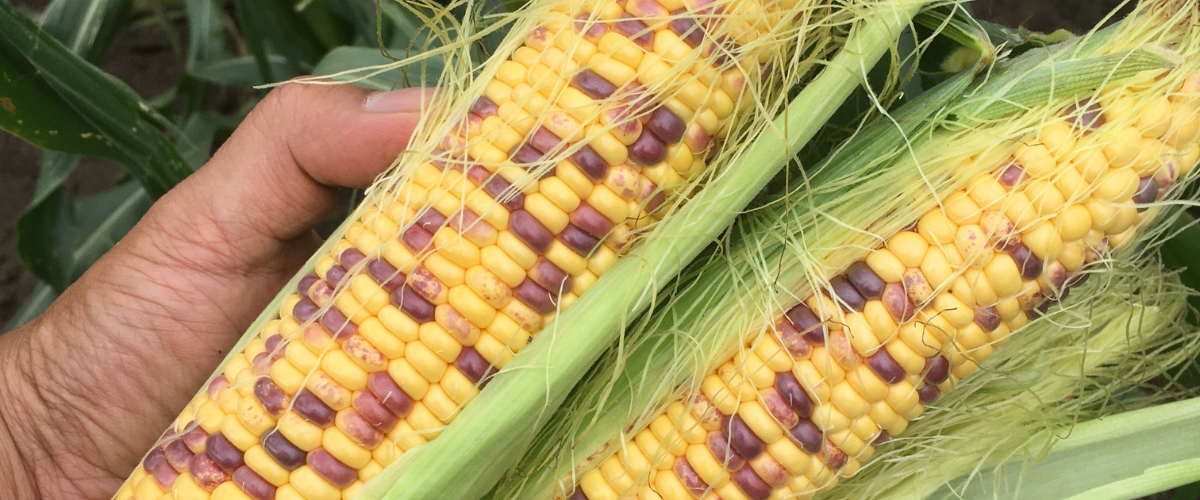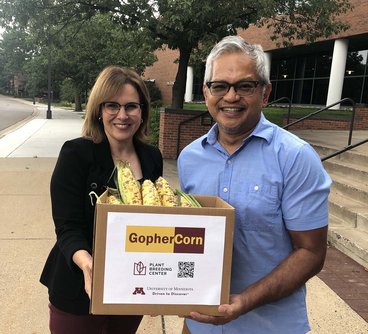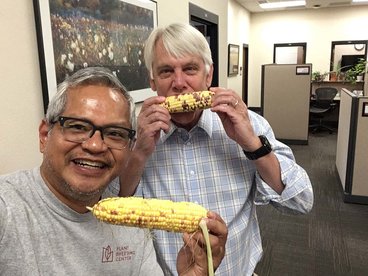
Fall food favorite screams Ski-U-Mah
CFANS professor and son develop maroon and gold corn

ELLA SHAW, AGRICULTURAL COMMUNICATION & MARKETING, BS '26
School spirit has never tasted this good. You may have a pair of maroon and gold striped Gopheralls in your closet, but did you know that you could find a food to match them? Professor and Endowed Chair Rex Bernardo, PhD, an expert in corn breeding and genetics in the Department of Agronomy and Plant Genetics, made that possible.
Professor Bernardo’s research focuses mainly on field corn used for animal feed, and he manages a corn nursery on the Twin Cities campus in St. Paul as a part of his work. As a fun side project with his son, David, Bernardo created a new sweet corn with University of Minnesota colors.

“I quickly realized that breeding for a new sweet corn variety with the usual yellow, white, or yellow-and-white kernels won't add much because we already have many such varieties on the market,” Bernardo said. “The thought then occurred to me, why not breed for a maroon and gold sweet corn for U of M pride?”
Aptly named GopherCorn, Bernardo developed the new variety with old-fashioned breeding techniques — using no DNA fingerprints, genetically modified organisms, or gene editing. They planted four sweet corn varieties: corn with yellow kernels, white kernels, bicolor kernels, and a mixture of colors you more commonly see in flint corn. In 2017, initial results were promising and by 2020 Bernardo explained that some of the experimental hybrids were showing a nice mix of maroon and gold.

U of M President Joan Gabel, CFANS Dean Brian Buhr and a few CFANS staff sampled GopherCorn this summer, and they all enjoyed the supersweet taste. As seed quantities increase over the next several years, GopherCorn has the potential to become more widely available for all.
This father-son project was especially meaningful to Bernardo, because David has autism, and this work gave David an opportunity to apply his attention to detail while learning something new. Thanks to their collaboration, CFANS can add another new variety to its long list of plants bred for human benefit. Learn more about the Plant Breeding Center where Bernardo currently serves as director.





